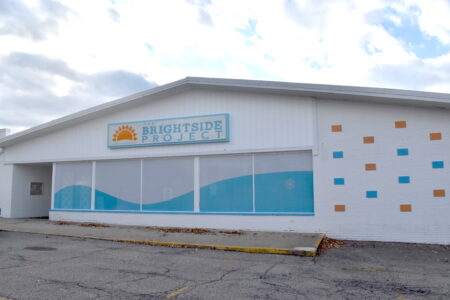Unused city funds to go toward TNR program in Salem
SALEM – The Salem City trap, neuter, and release (TNR) project will be getting a monetary boost from the city.
During the city council’s meeting Tuesday TNR Project Coordinator Brenda Austin presented council with an update on the TNR program’s efforts to address the city’s feral cat population since being formally recognized within city ordinance in June. She said that so far 75 cats had been trapped neutered and vaccinated as part of the program 37 in June 15 in July 15 in August, and five in September thus far. She said that the “slowdown” was because Angels for Animals could only take three cats per day Monday through Wednesday to be neutered and administered their rabies vaccination, and that those slots are shared with the Columbiana County Humane Society.
“I appreciate them working with me on those spots so if they have kittens for adoption or whatever that they need fixed, then we work around with it and we get it done,” said Austin.
She said that she occasionally works with other clinics, but they are typically more expensive than Angels which charges $20 to neuter and $15 to vaccinate, meaning $35 for each cat. She also said that Angels now has an option on their website to donate to the designated Salem TNR fund, but that a second fund for donations should be established which can be used at other clinics like AlterClinic Animal Care in Canton which she said charged $46 per cat to neuter, vaccinate, and provide flee prevention treatment and ear tipping, and also administers an additional vaccine “which covers all of the common upper respiratory illnesses,” and will take any number of cats in a given day with prior registration.
Mayor Cyndi Baronzzi Dickey said that as she and City Auditor Sal Salvino were finalizing departmental budgets for 2026 in preparation to present the city council with the 2026 city budget for approval, they located an $8,000 line item in the current police budget which had been intended to be used for animal control but had never been spent as there was no humane officer. She proposed that some of those funds be used to support the TNR program through a $2,000 reimbursement donation, meaning “if [the program] had bills from vets they could bring them in up to that $2,000,” and a $1,000 donation to seed a fundraising project for the program which could become self-sustaining like getting pet accessories printed for sale at local veterinary offices or pet stores, with the remaining $5,000 being returned to the general fund. Dickey also noted that while technically council approval wouldn’t be necessary that she felt “in all fairness we need council support for these kinds of things that were not really the intent of a budgeted item.”
“You can tell there’s a big need here and one of the main blocks [Austin] is having is funds. The donations don’t come in fast enough to meet all the needs. There are people who have cats that need to be trapped but they don’t want to pay for it themselves because they aren’t their cats and things like that, so it’s been a bit of a block,” said Dickey.
Councilman Jeff Stockman said that he was in favor of the idea but thought that $1,000 of that funding could be used to cover the costs of equipment and lettering for the Animal Control Officers vehicle, which were not budgeted for when the position was made and Dickey suggested that those expenses could be drawn from the $5,000 that would remain in the line item after the donations.
While no formal vote was needed as the money was already budgeted and appropriated, Dickey requested a show of hands to indicate whether the council was in favor of the proposal with all city council members raising their hands in support.
The city council will meet next at 7 p.m. Oct. 7.


